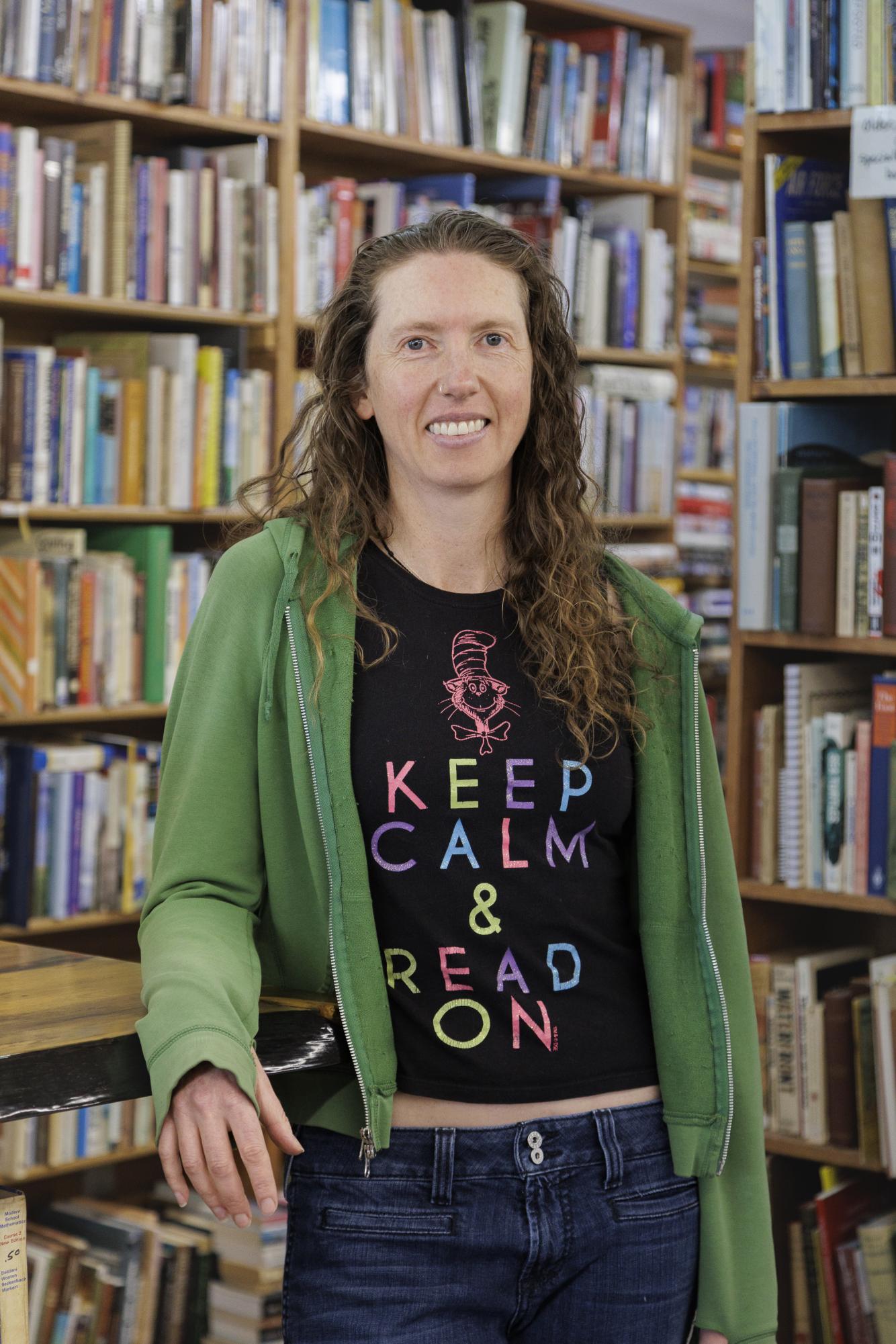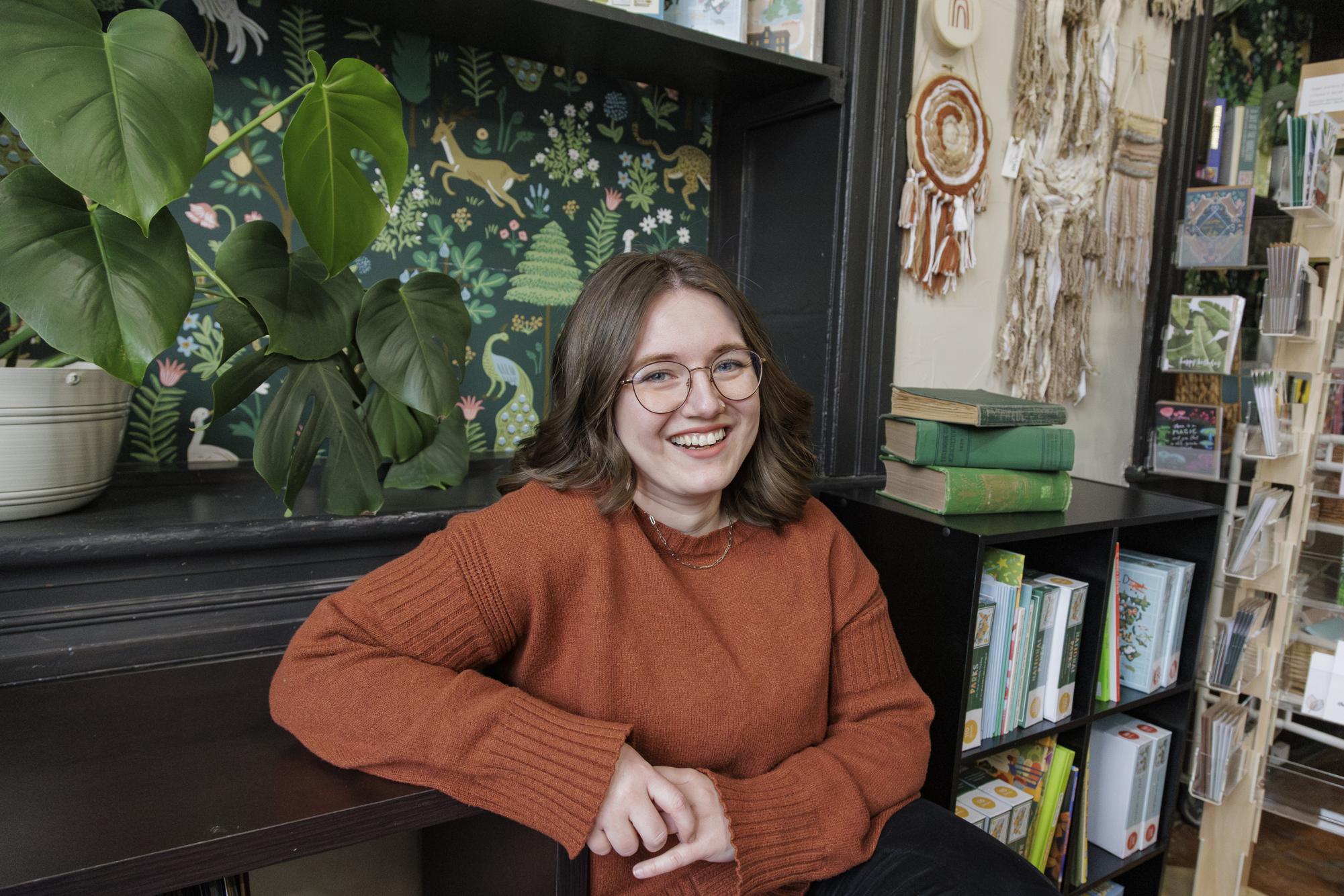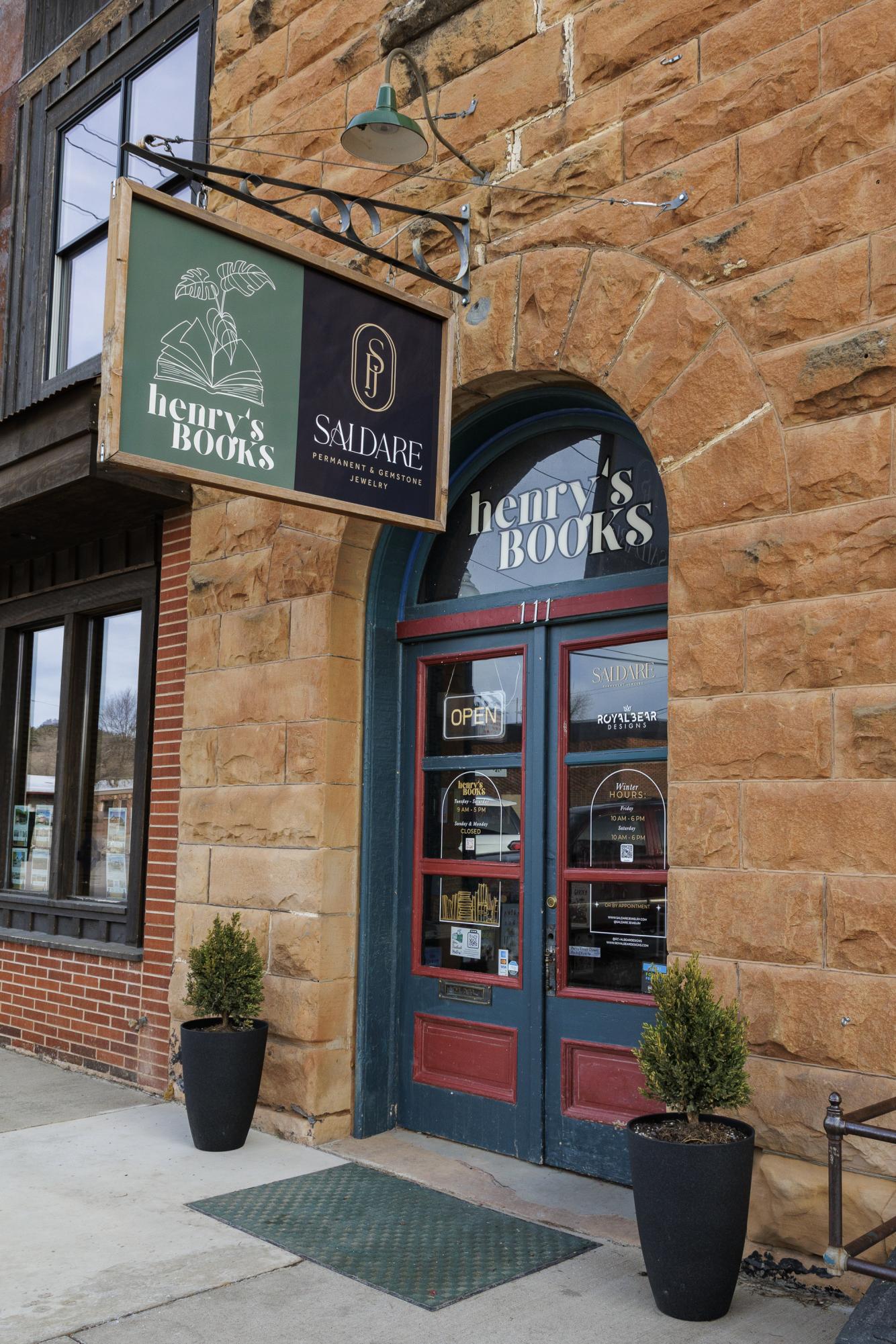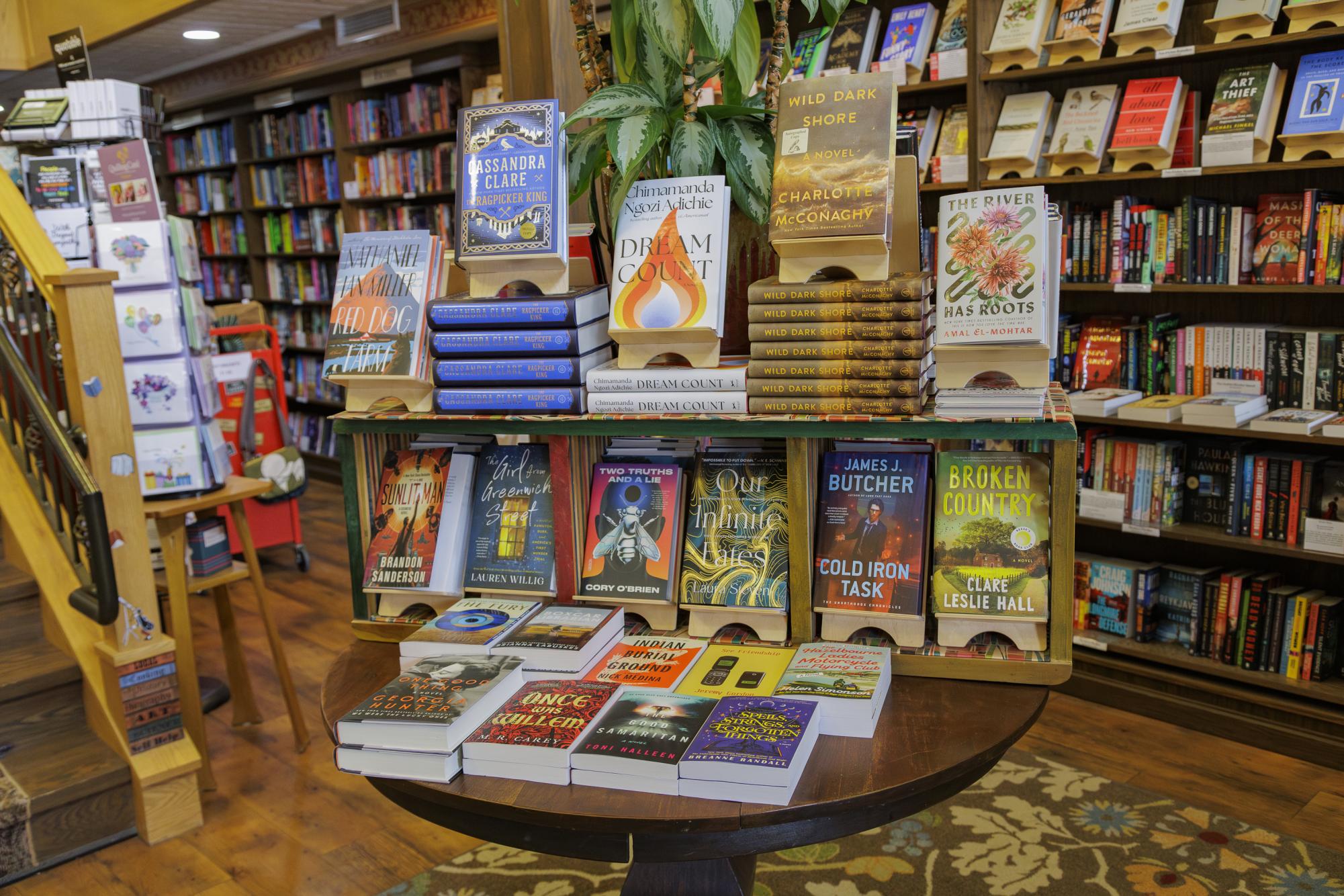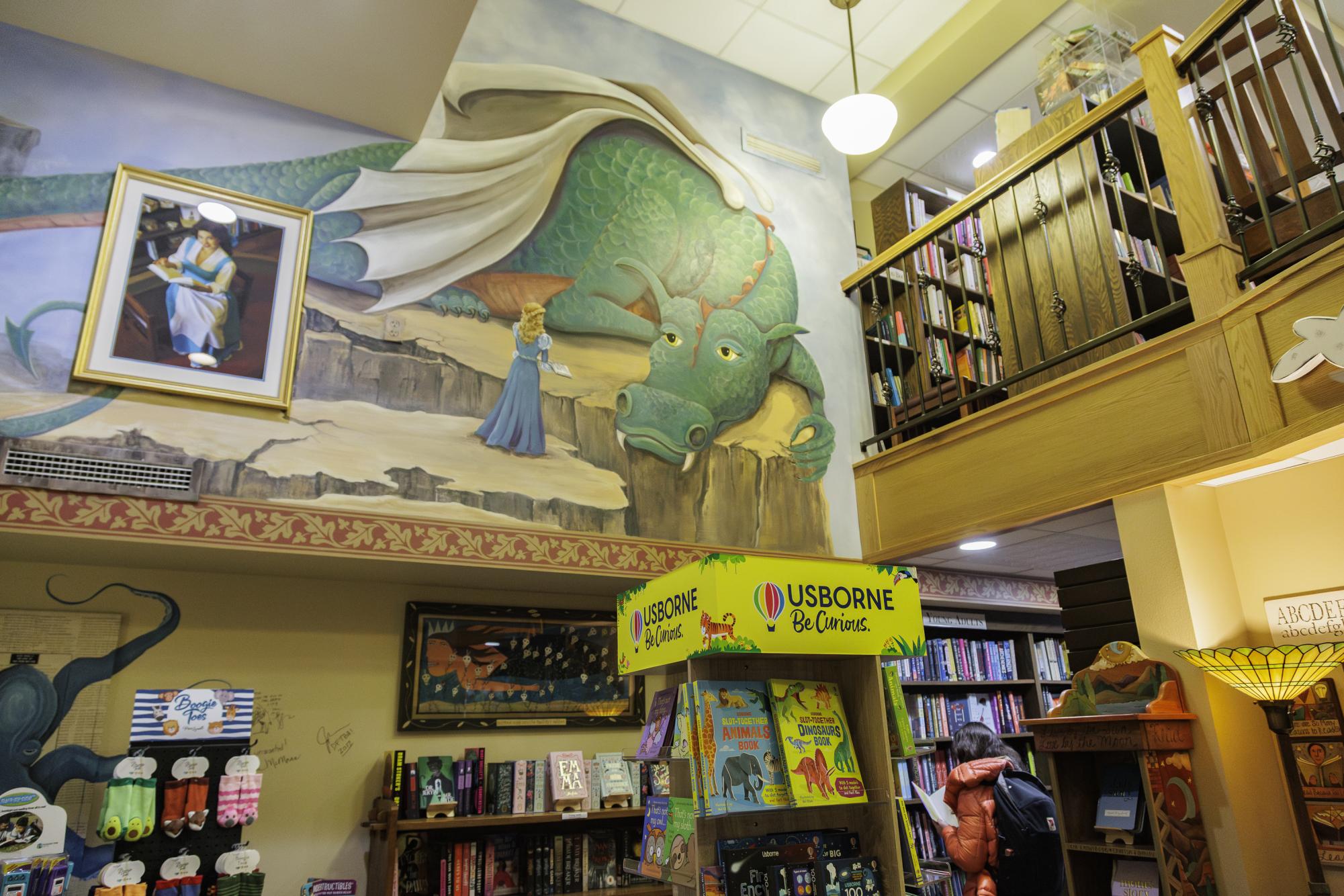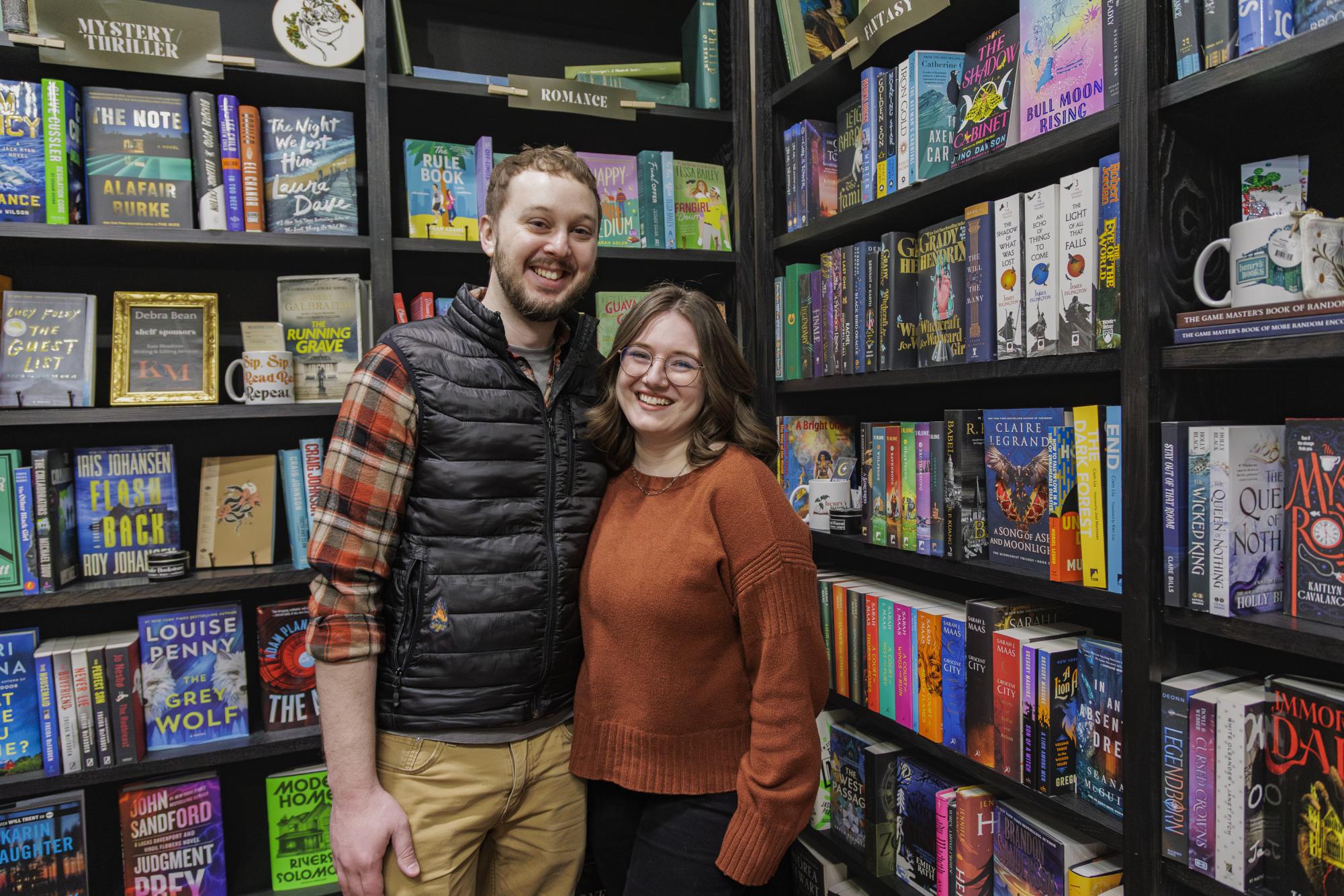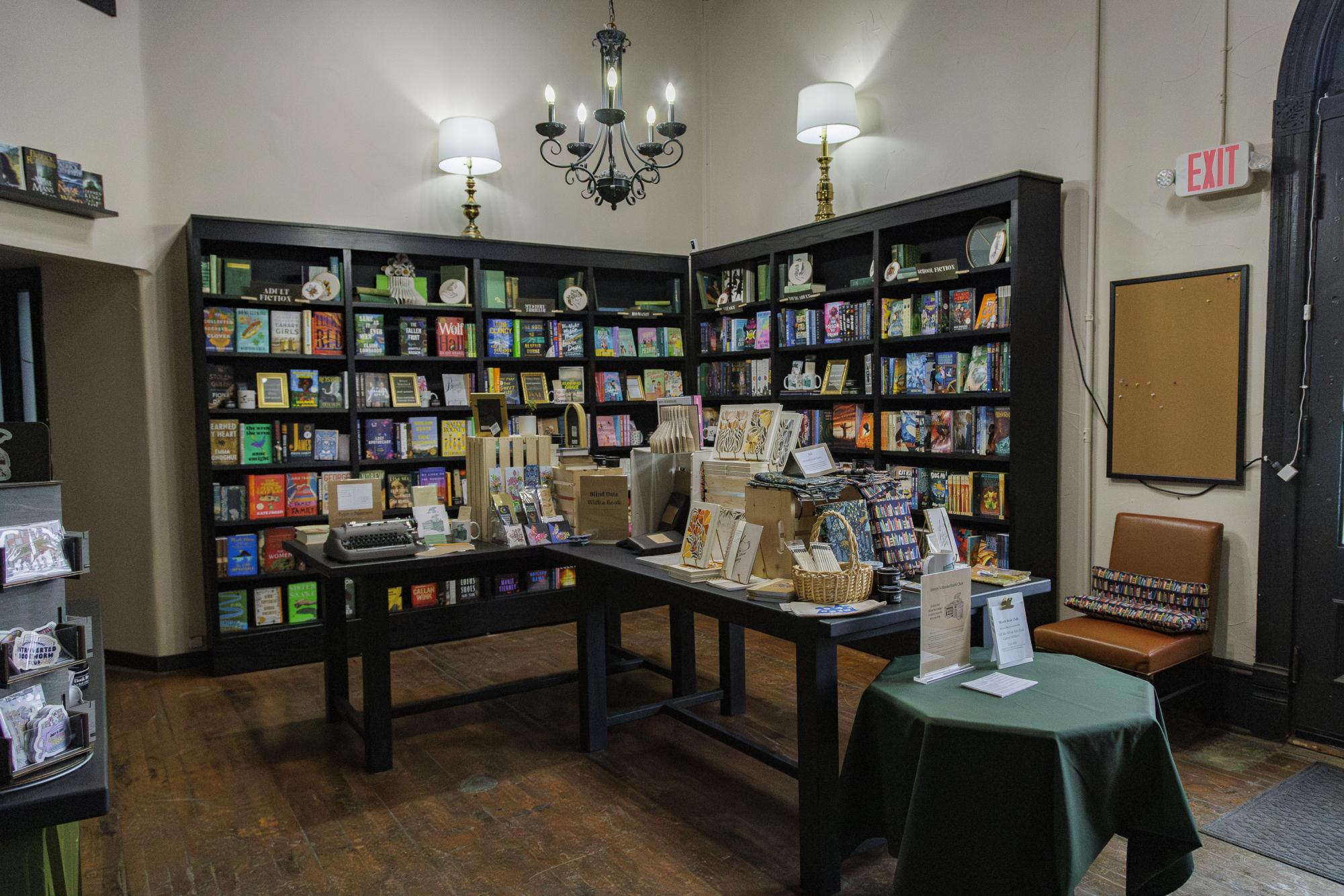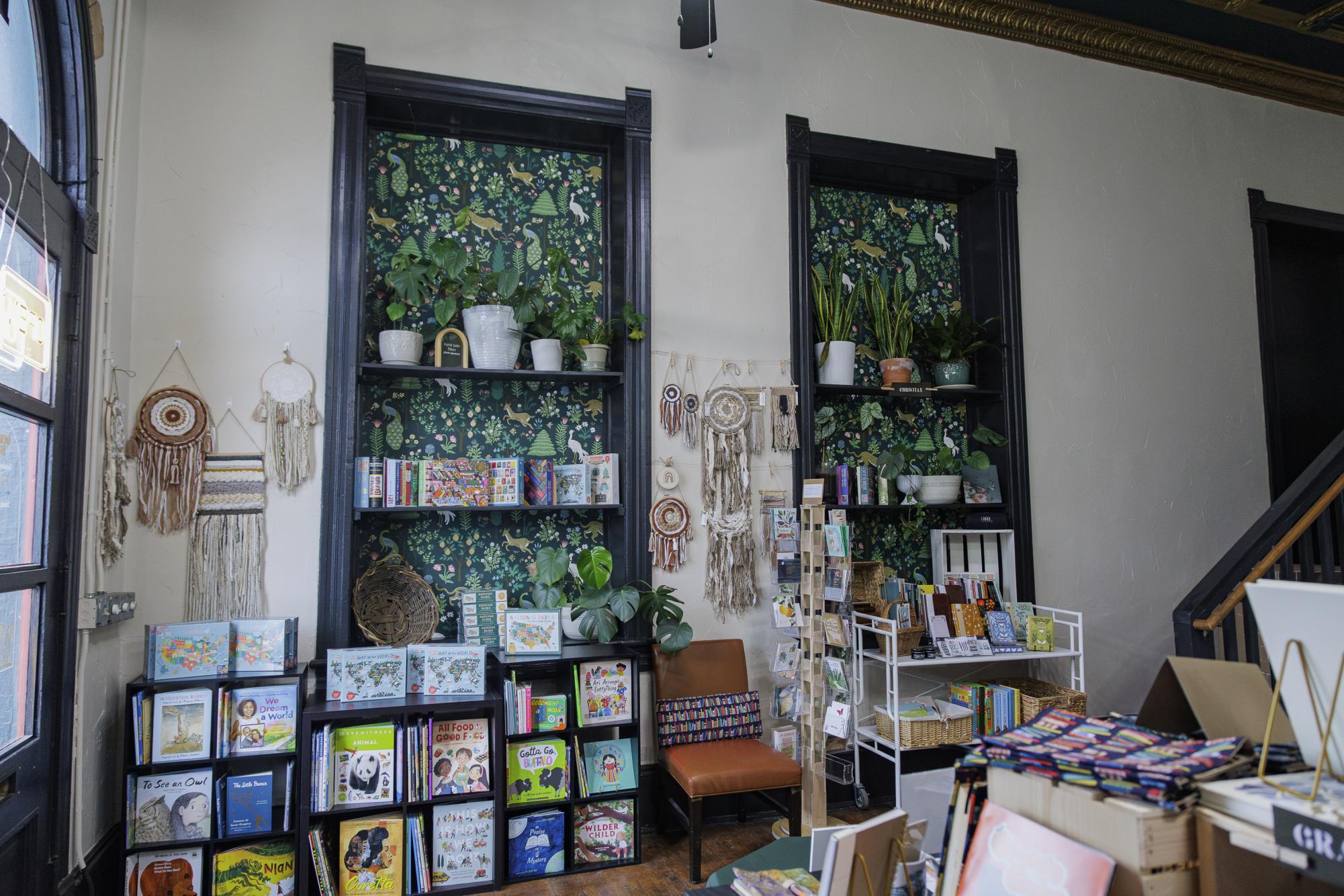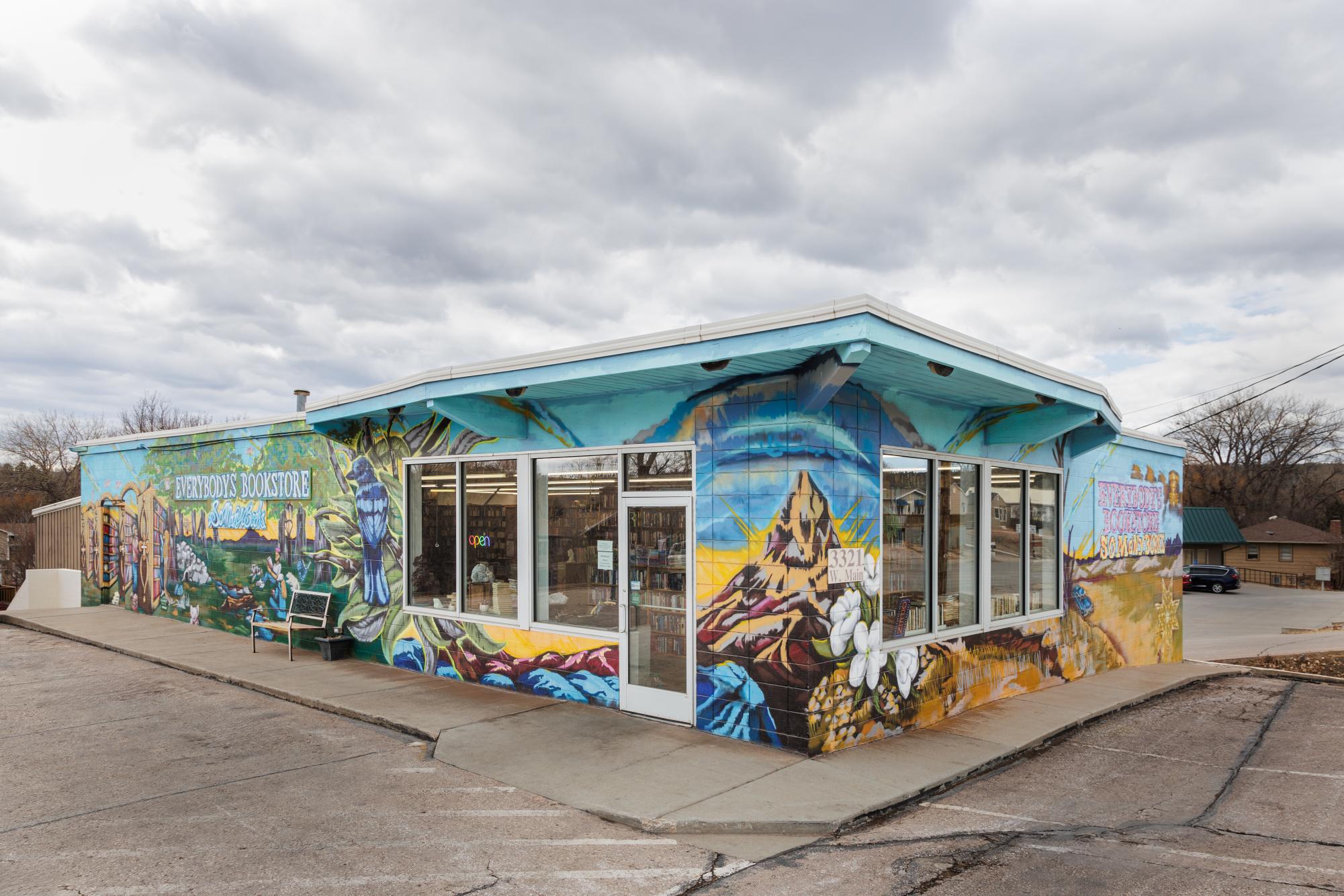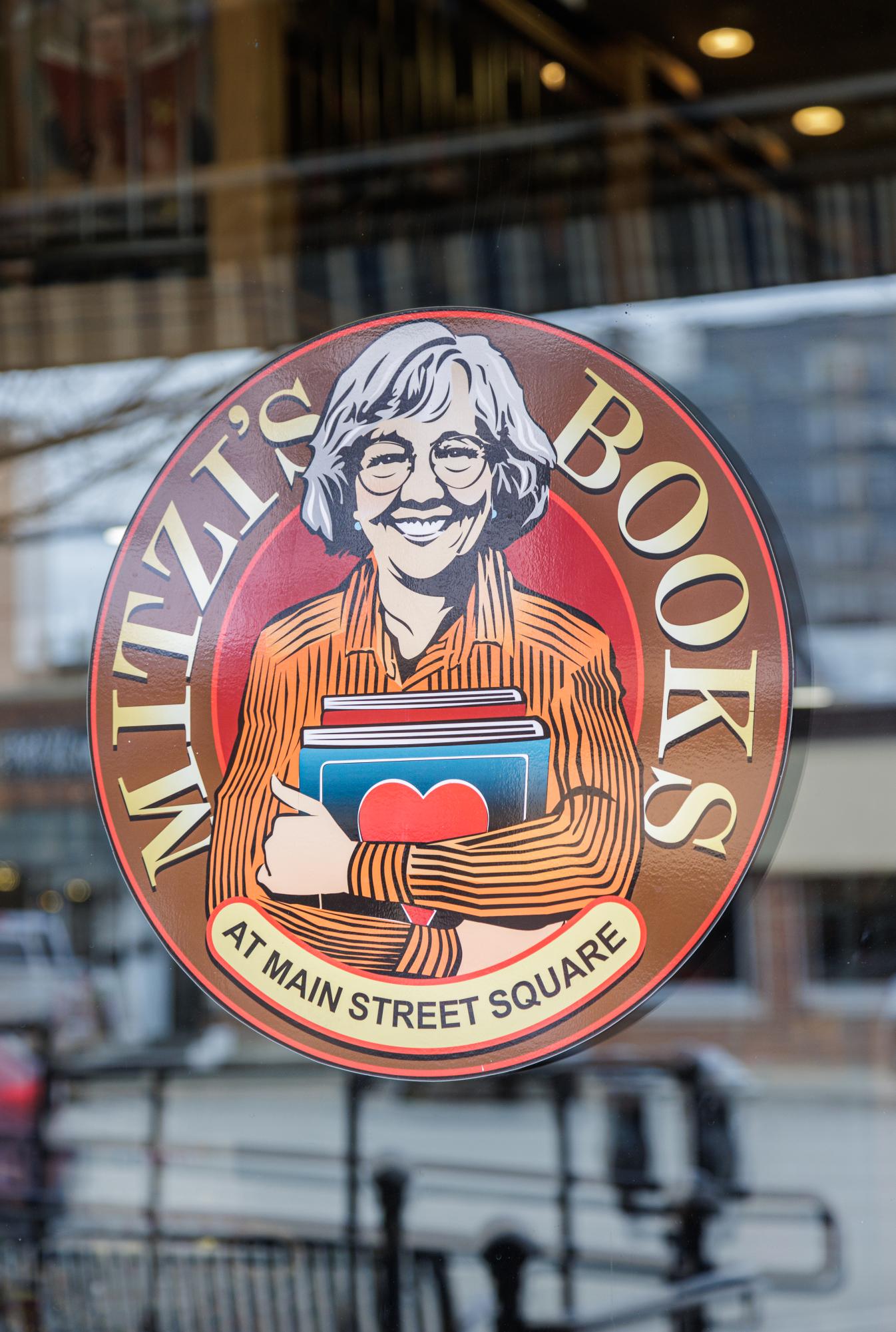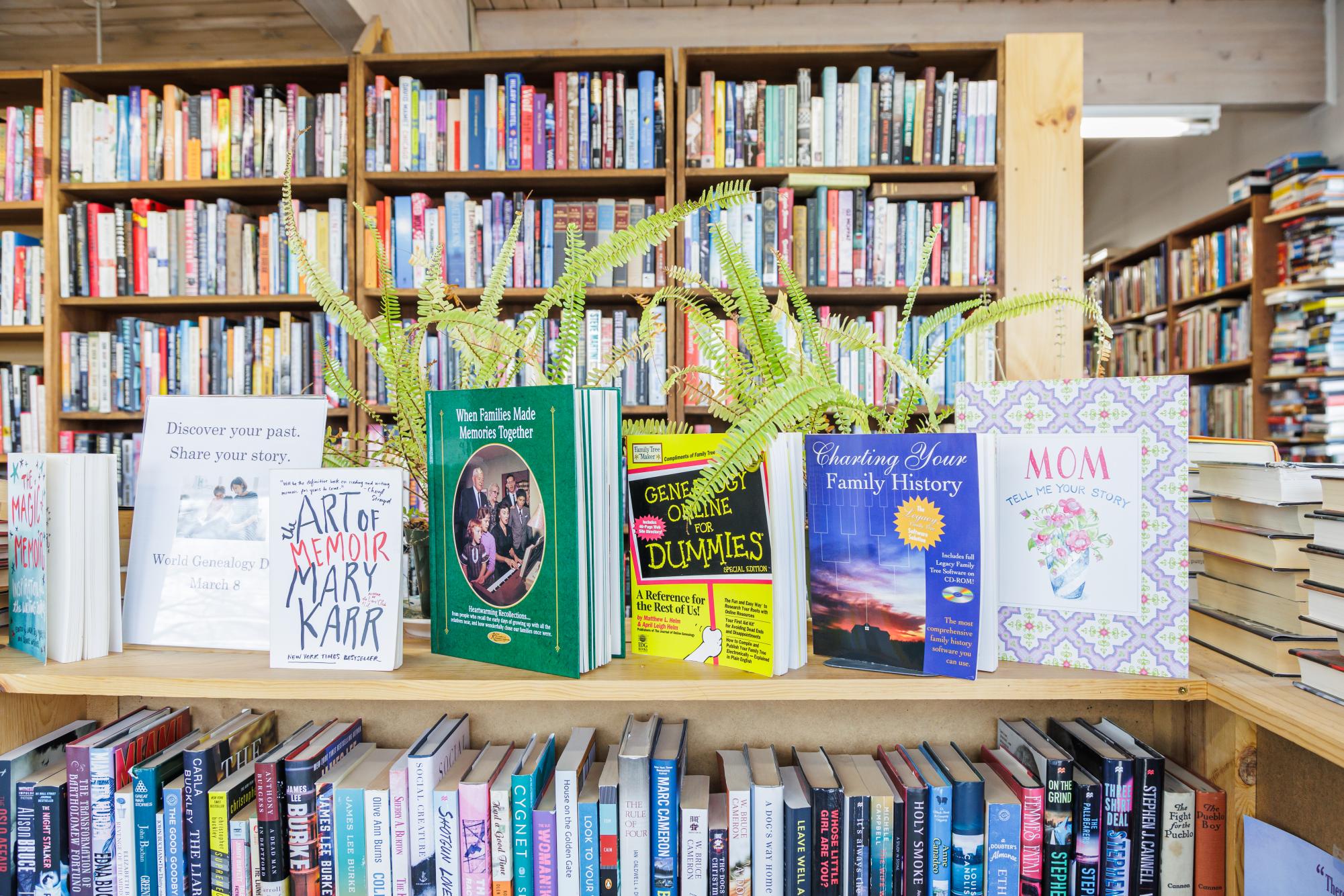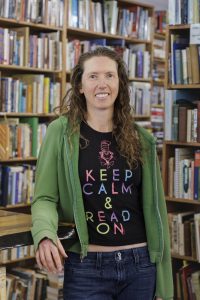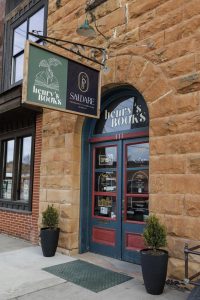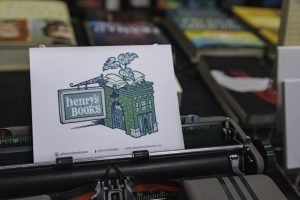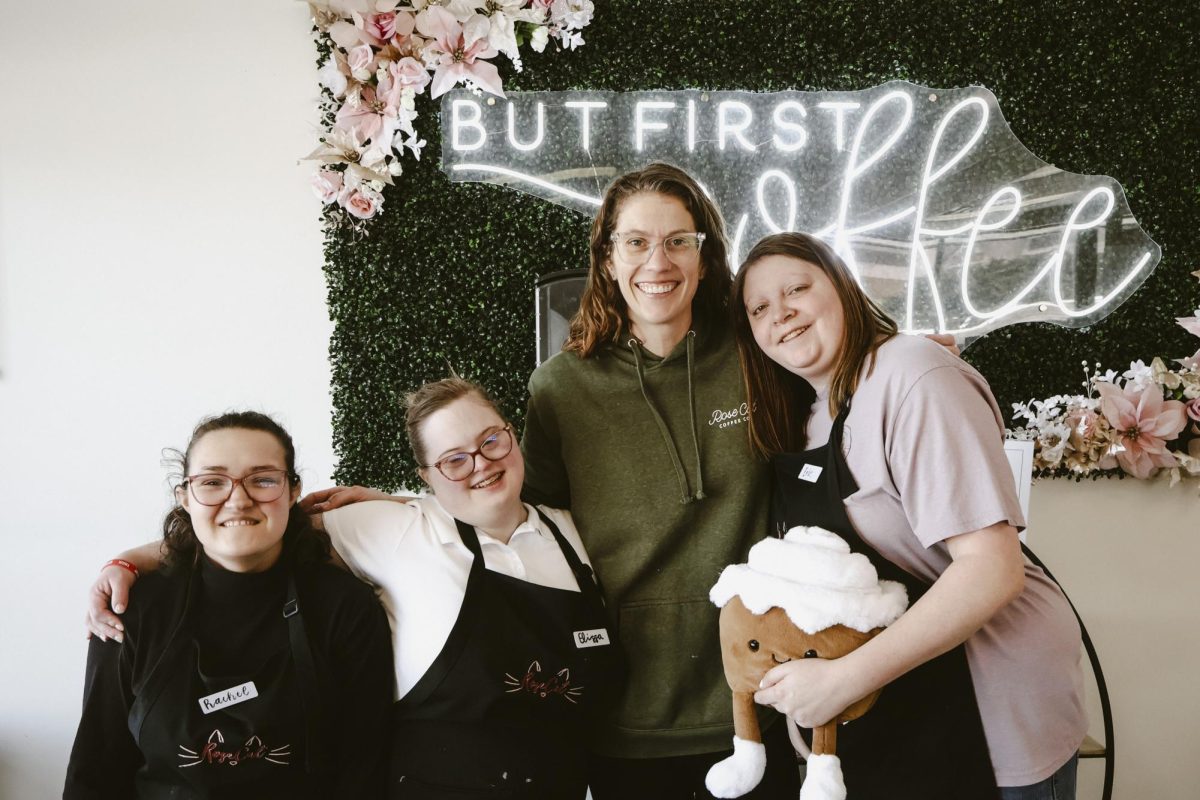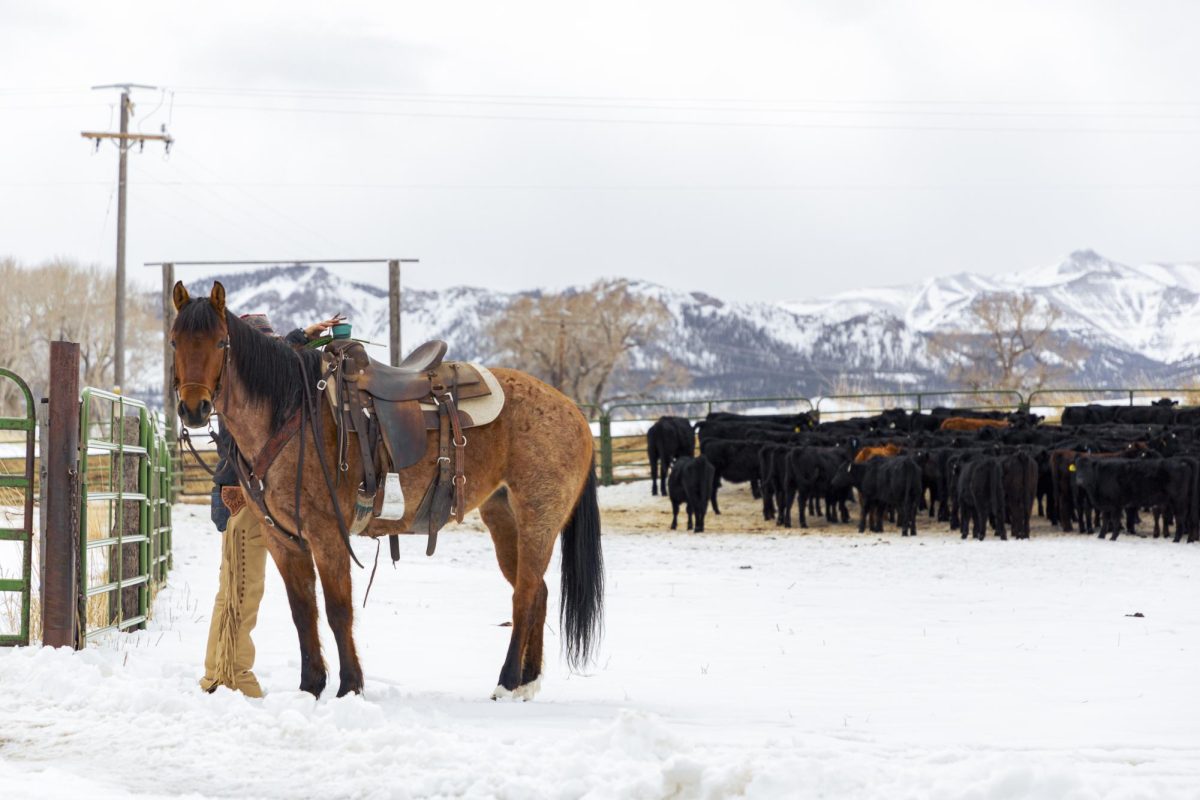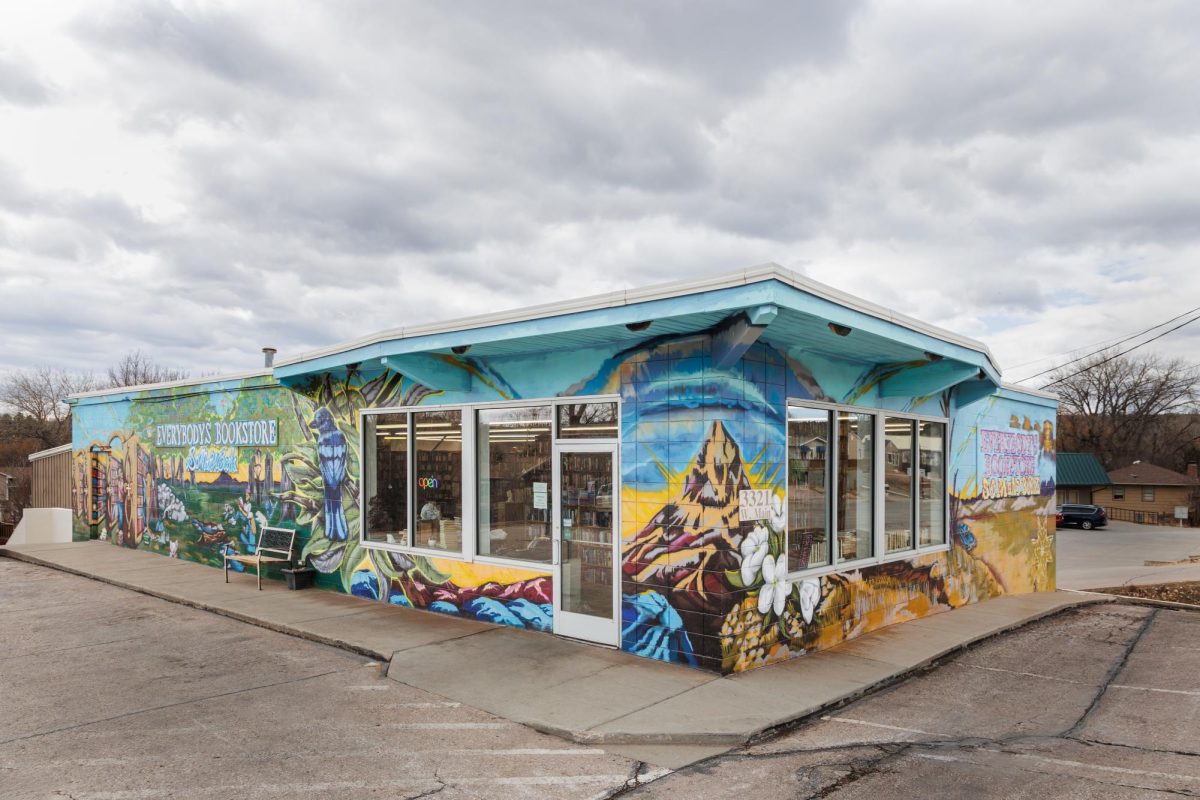 Everybody’s Bookstore, Rapid City, SD
Everybody’s Bookstore, Rapid City, SD
Four years ago, Jessie Polenz did not want to own a bookstore.
“I always just wanted to work for somebody and get my paycheck and go,” Polenz said.
So working Mondays at Everybody’s Bookstore in Rapid City, South Dakota, was perfect for her. That is, perfect until the owner–Lori Speirs–decided to sell, and no one wanted to buy.
Speirs kept the store on the market for six to eight months, but not many people were looking to purchase a used bookstore in 2022, and eventually she decided to liquidate the store so she could actually retire.
“I was like, wait, wait!” Polenz said. “I never had a desire to actually own a business, but it was ‘own a business and figure it out’ or ‘don’t have the best bookstore in town anymore.’ So I said, ‘Okay, I will buy this place, and I will figure it out.’”
Everybody’s Bookstore, located on West Main Street, is easily recognizable by the colorful mural that wraps around the building proclaiming, “So. Many. Books.” The interior was crafted by a book lover for book lovers: a maze of tall shelves with an assortment of armchairs, stools and wooden kitchen chairs tucked in the corners.
Taking over Everybody’s Bookstore was not easy. Polenz said several times that she would have enrolled in a few business classes during college if she had known where life would take her.
“There’s some things as an English major that you don’t know anything about until somebody tells you,” Polenz said.
While her previous work at Everybody’s Bookstore (as well as other bookstores and libraries) had taught Polenz how to curate and organize a collection of books, she knew very little about the financial and legal aspects of running a bookstore–especially the taxes.
“I’m glad to pay my taxes,” Polenz said. “But when do you pay them? Who do you pay them to? How often do you pay them? There’s nowhere that lays all this out for new business owners, at least not that I could find.”
Organizing the books in the store was a task of such magnitude it left Polenz lying on the floor, overwhelmed. When she took over, stacks of books covered the floor as well as the shelves, so she decided to abridge the inventory and arrange all the books by genre and author’s name, with a special marking system allowing her to see how many years a book had sat on the shelf.
Her sister and another employee, Danielle, helped organize huge sections of the store, and her dad, a retired carpenter, built more shelves. The store is still full; Polenz joked that she doesn’t host book clubs because there’s no room, and if there is room, she fills it up with books.
“My dad can’t even stand it when I look at him,” Polenz said. “He’s like, ‘Oh God, what have you done? There’s no more room for shelves.'”
At its core, Everybody’s Books is a bookstore by the community, for the community.
“We literally would not be here without the community because I don’t go looking for books,” Polenz said. “I’ve spent maybe thirty dollars on books the whole time I’ve owned this store, just because I picked some up when I was over in Wyoming for fun.”
Her entire collection is built from the books that people bring her. Polenz would be the first to say there’s nothing wrong with buying a book straight off the printing press, but she believes there’s something special about used books.
“New books don’t have any history or past yet, but an old book will intersect with your life in a much more interesting way,” Polenz said.
In exchange for their donations, customers get store credit. Some customers also help organize shelves in exchange for books. And whether they volunteer or just shop, many customers build relationships and have conversations about their most recent reads.
“It’s so cool how people come together here–really like-minded people,” Polenz said.
Polenz developed a love for reading at a young age, as her family couldn’t afford television–and later when they could, they didn’t need one because they had books. For a while Polenz also wanted to be a writer, but when she gets home at the end of a long day she doesn’t want to write–she wants to read.
She recently read The Invisible Life of Addie LaRue, in this book one of the characters (who works in a bookstore) says he would rather be a story keeper than a storyteller.
“That’s where I’m at right now too,” Polenz said. “I’m a story keeper.”
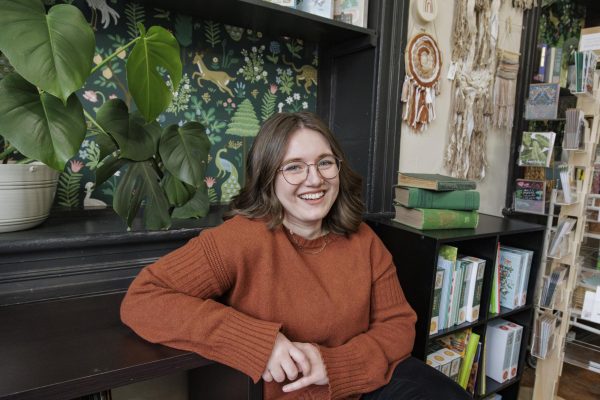 Henry’s Books, Spearfish, SD
Henry’s Books, Spearfish, SD
Elizabeth Mattson came into her bookstore with a little more planning than Polenz, though she hadn’t always envisioned herself owning a bookstore either.
“Customers ask me fairly often, with a starry look in their eyes, ‘Was this your dream since you were a kid?’” Mattson said. “And I say, not necessarily a bookstore, but I did always dream about having something that made a meaningful impact on the community.”
She opened Henry’s Books with her husband, Dylan, in Spearfish, South Dakota. The store, named after her three-year-old son, is located in a beautiful historic building in downtown Spearfish with creaky wood floors and tall dark shelves.
Though it is small–and, she admits, partially because it is small–Mattson carefully curates the ever-changing collection. “My journey has been so much of waiting for somebody to give me permission, but I never needed anybody to give me permission to take that leap of faith,” Mattson said.
She graduated from BHSU with a psychology degree, but the career it led to wasn’t for her. In 2017, she won a free ticket to a business coaching program, and that gave her the courage to take a step toward her dream job–working for herself. She sold her high school car and used the money to start up a social media marketing business. Later, she transitioned into consulting.
“Everything I learned in working for myself beautifully culminated into opening the bookstore,” Mattson said. “It didn’t feel scary anymore.”
Henry’s Books opened on June 4, 2024. People came one-by-one until the store was packed full and the line stretched onto the road outside, everyone was grabbing books as fast as they could.
“I will never forget the excitement on people’s faces,” Mattson said.
The store closes at five, but at six her husband, Dylan, had to start turning people away. In the first week of business, they sold a month’s worth of inventory.
“Never in my life had I really had to tell myself yesterday wasn’t a dream, it was actually real, and I was going to go to the bookstore and do it again,” Mattson said. It seems a bookstore is what Spearfish wanted. Just as Polenz discovered that Everybody’s Bookstore is a place where old friendships are revisited and new friendships are built, Mattson has found Henry’s Books to be a place for the readers of Spearfish to come together.
While she hosts workshops, book clubs and signings for local authors, her customers also form relationships through casual conversations about books.
“As divisive as things feel right now, we have more in common if we would all lead with kindness and open-mindedness,” Mattson said. “The more you read the more empathetic you become.”
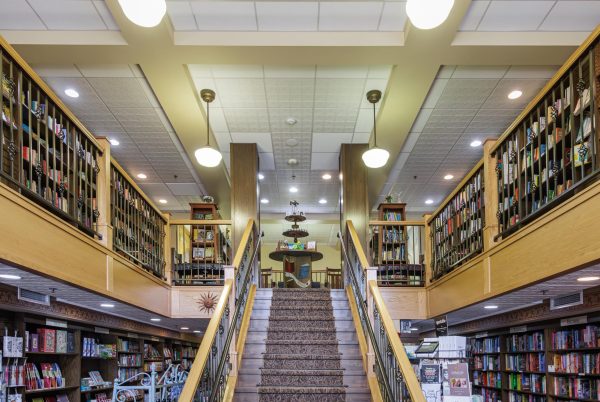 Mitzi’s Books, Rapid City, SD
Mitzi’s Books, Rapid City, SD
If Polenz’s and Mattson’s stories suggest that a bookstore is a solid investment, Mitzi’s Books in Rapid City, South Dakota proves it. Mary Ackland, the retail manager, was not alone in the creation, though she has been there since its beginning in 2013. The store was built by Ray Hillenbrand, who also founded Prairie Edge and Main Street Square, and named it after his sister, Mitzi, who passed away before the grand opening.
Mitzi’s Books resembles a bookstore from a movie. Just through the towering front door, carpeted stairs lead to a balcony that houses the nonfiction section. On the ground floor, shelves filled with colorful books draw customers back to the children’s section, where a mural of a green dragon watches over young readers.
While books are the primary merchandise in the store, Mitzi’s Books also sells jewelry, art and soaps among other things.
Ackland has loved reading since she was a child. She remembers her parents sitting in their bed reading books, and keeping plenty of books around the house for her to read as well.
“That’s where the love comes from–at home,” Ackland said.
She always liked the idea of working in a bookstore, but the number of people who want to be employed by a bookstore usually is far greater than the number of bookish job openings, so she had little initial success.
“Usually the way you get in is if you know somebody,” Ackland said. “I just never thought I’d be able to.”
But then the Borders bookstore in Rapid City hired her to open their cafe, as she had restaurant experience, and running the cafe included working with books. A few months before Borders went out of business, she was hired by Mitzi’s to help open and has been there since.
Though Ackland once doubted that she would get a bookstore job, she’s been in the book business for 25 years–long enough to know what title someone is looking for when they describe a certain purple book cover.
There are several book clubs that order their books through Mitzi’s and many more regular customers who frequent the store so often Ackland can suggest their next read before they give her any particulars.
“That’s what’s really nice about it being a smaller store,” Ackland said. “You get more of a sense of community.”
This community also includes the five employees, who love talking about books with each other and put out book recommendations for customers.
“When you read a book, you want to talk to someone about it, and it’s even better if they read too,” Ackland said.
Among various concerns, Ackland doesn’t believe that reading is dying in the middle of this digital age.
She sees families enter the store every day, families where parents love reading and are doing their best to help their children to love reading as well.
“You probably just don’t see it as much as it actually happens,” Ackland said. “I think a lot more people need to read, but I think people still do it.”
Is reading important? All three women had similar answers: every book gives a glimpse into other people’s stories, and hearing other people’s stories expands a person’s thinking.
Mattson gave the example of Jodi Picoult and Jennifer Finney Boylan’s story Mad Honey. While the book was sad, she loved it because it broadened her perspective.
“I was able to learn things about my friends who are transgender that it would never have occurred to me to ask them,” Mattson said. “If I had asked them it would have been insensitive. So by reading that I gained a new perspective that now I bring with me to relationships that are really important to me.”
Mattson learned how to approach every person and their story with gentleness, and she wants to give people that experience.
“How boring would life be if everybody you knew was exactly like you?” Mattson said. “I also think it’s a false assumption to think that just because you’re in the company of people you have a lot in common with that they are really just like you. There is always more to the story than you would expect.”
Polenz also pointed out that reading is an escape, and for her, a meditation.
“When you’re meditating, you’re letting your thoughts go and not hanging onto anything,” Polenz said. “Just kind of watching the clouds float by, and that’s how it is when I’m reading. I’m so immersed in that book that there are no other thoughts in there.”
Ackland and Polenz and Mattson aren’t just selling paper and glue, they’re selling stories. And people want to participate in this exchange. That’s why Everybody’s Bookstore has been in business since 1995, Mitzi’s Books has thrived since 2011, and Henry’s Books had such a grand opening in the summer of 2024.
People want to read, and they want to read physical books because that is a special experience in itself.
“I don’t think there’s anything like the experience of cracking open a book,” Ackland said. “It’s the whole thing–it’s the smell, it’s the anticipation of it. You don’t get that reading on your phone.”
And, as Polenz pointed out, physical books still work when there’s no electricity.
“I don’t want to go all apocalypse here,” Polenz said. “But I’m going to have a good collection of books myself–just in case.”
Once when Polenz was in school at Black Hills State University, the electricity went out because of a blizzard. Unperturbed, she curled up by the gas heater near the window, and read.
“Everybody’s like ‘what are we gonna do!’ and I was like, ‘I have some books, please calm down.’”


